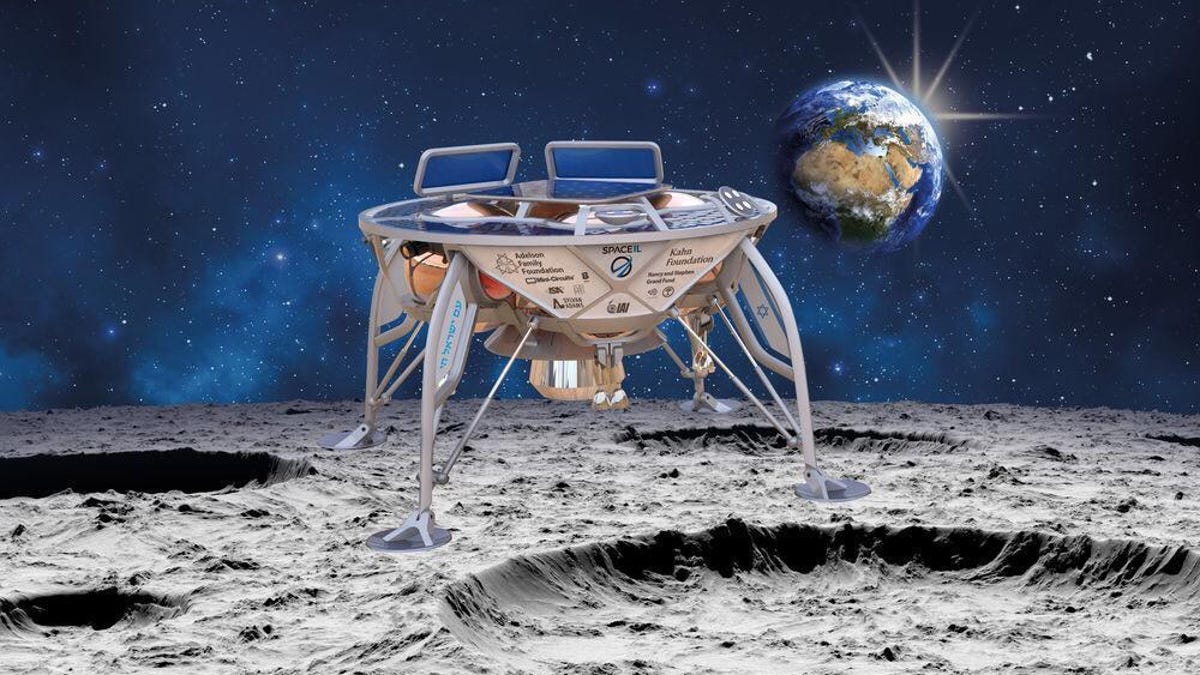Beresheet lander bound for the moon hits Ctrl-Alt-Delete
The spacecraft built by an Israeli nonprofit and one of the original Google Lunar XPrize teams misses a planned move to get a little closer to the moon.

The little lander Beresheet hopes to make history in multiple ways this year.
The first commercial lander bound for the surface of the moon suffered a hiccup early Tuesday.
Israeli nonprofit organization SpaceIL's Beresheet spacecraft was supposed to perform an engine burn to raise its elliptical orbit around the Earth, but instead its computer unexpectedly reset itself. As a result, the maneuver was automatically cancelled.
In a statement, SpaceIL said it's examining data alongside its partner Israel Aerospace Industries (IAI) and analyzing the situation.
"At this time, the spacecraft's systems are working well, except for the known problem in the star tracker."
Shortly after the spacecraft was deployed from a SpaceX Falcon 9 rocket last week, Beresheet's engineers found its star tracker, which helps determine its position in space, was sensitive to being blinded by the sun's rays. SpaceIL has said it's working on the issue
Representatives for SpaceIL didn't immediately respond to a request for more information on how the issues may affect Beresheet's mission timeline.
SpaceIL was one of the original Google Lunar XPrize competitors. While the competition ended last year without a winner, the project moved forward with the help of IAI and a few very large donations from billionaire businessmen Morris Kahn and Sheldon Adelson.
Beresheet was built and launched on a relatively small budget of about $100 million, and as a result, it carries few of the backup systems that are included in typical NASA spacecraft.
Fortunately, SpaceIL says that so far Beresheet remains in communication with its control center and stands ready to try an orbit-boosting burn again.
Following a complicated set of orbits around Earth and then the moon, Beresheet is aiming to attempt a moon landing in April.

